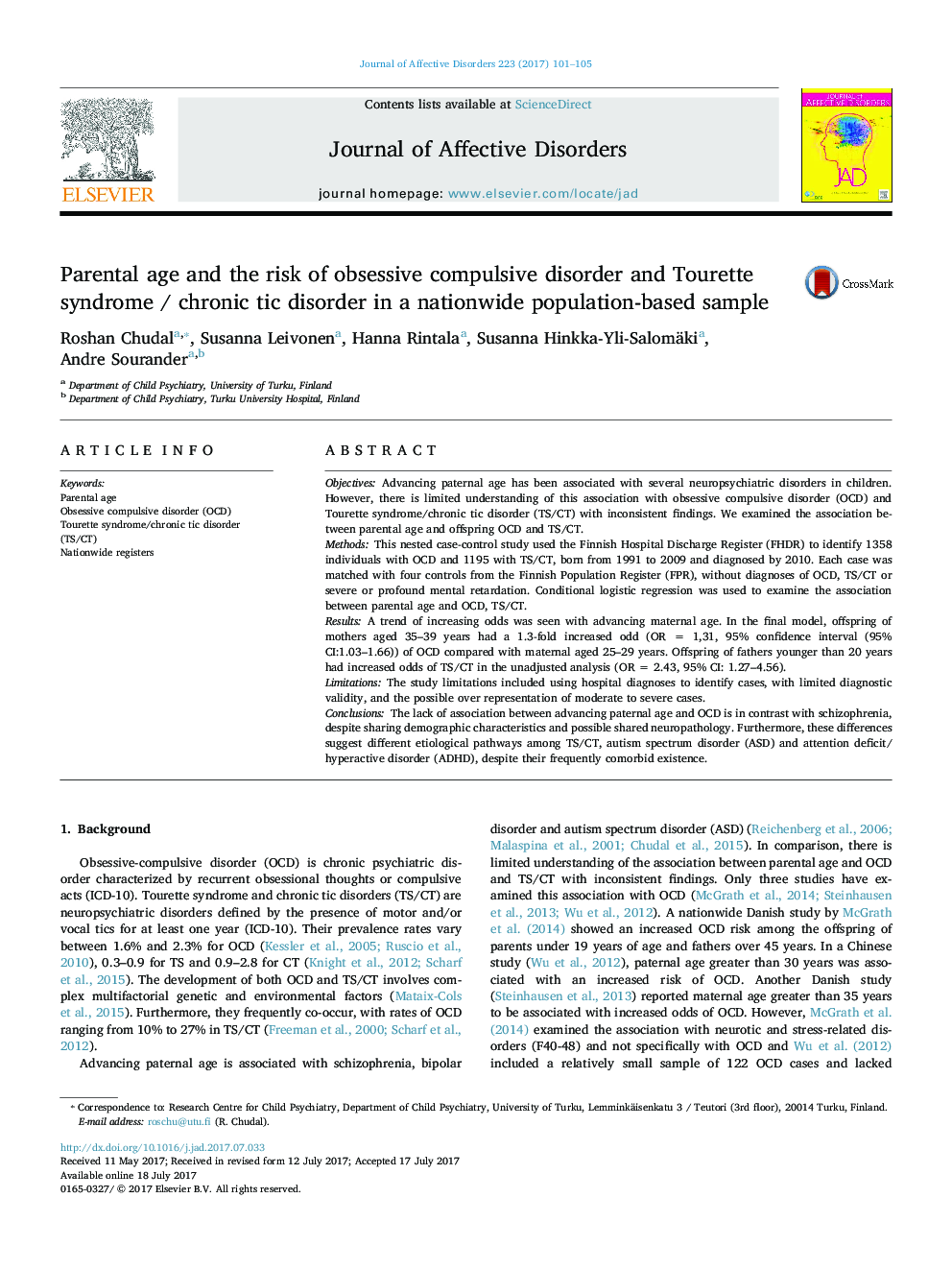| کد مقاله | کد نشریه | سال انتشار | مقاله انگلیسی | نسخه تمام متن |
|---|---|---|---|---|
| 5721798 | 1608102 | 2017 | 5 صفحه PDF | دانلود رایگان |
- Advancing paternal age is associated with several neuropsychiatric disorders.
- There is limited understanding of this association with OCD and TS/CT.
- Parental age as a risk factor seems to have opposing influences in various disorders.
- This could be of importance when considering the etiological factors in these often comorbid disorders.
ObjectivesAdvancing paternal age has been associated with several neuropsychiatric disorders in children. However, there is limited understanding of this association with obsessive compulsive disorder (OCD) and Tourette syndrome/chronic tic disorder (TS/CT) with inconsistent findings. We examined the association between parental age and offspring OCD and TS/CT.MethodsThis nested case-control study used the Finnish Hospital Discharge Register (FHDR) to identify 1358 individuals with OCD and 1195 with TS/CT, born from 1991 to 2009 and diagnosed by 2010. Each case was matched with four controls from the Finnish Population Register (FPR), without diagnoses of OCD, TS/CT or severe or profound mental retardation. Conditional logistic regression was used to examine the association between parental age and OCD, TS/CT.ResultsA trend of increasing odds was seen with advancing maternal age. In the final model, offspring of mothers aged 35-39 years had a 1.3-fold increased odd (OR = 1,31, 95% confidence interval (95% CI:1.03-1.66)) of OCD compared with maternal aged 25-29 years. Offspring of fathers younger than 20 years had increased odds of TS/CT in the unadjusted analysis (OR = 2.43, 95% CI: 1.27-4.56).LimitationsThe study limitations included using hospital diagnoses to identify cases, with limited diagnostic validity, and the possible over representation of moderate to severe cases.ConclusionsThe lack of association between advancing paternal age and OCD is in contrast with schizophrenia, despite sharing demographic characteristics and possible shared neuropathology. Furthermore, these differences suggest different etiological pathways among TS/CT, autism spectrum disorder (ASD) and attention deficit/hyperactive disorder (ADHD), despite their frequently comorbid existence.
Journal: Journal of Affective Disorders - Volume 223, 1 December 2017, Pages 101-105
